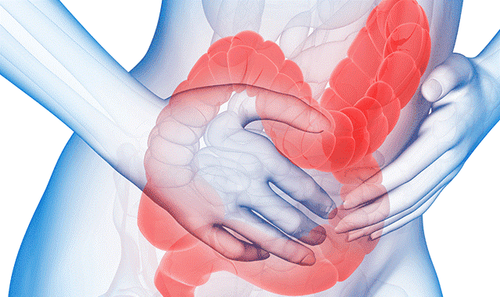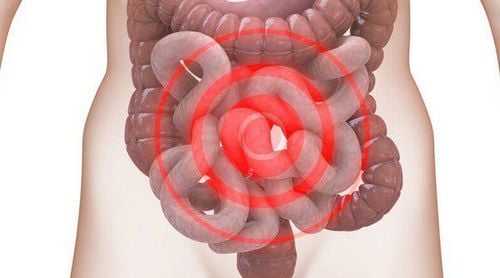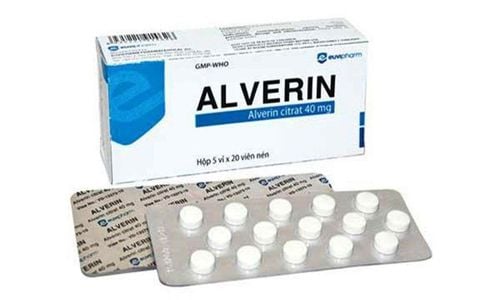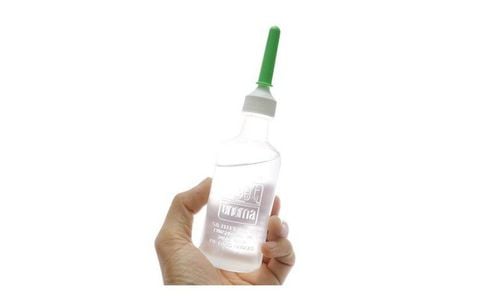This is an automatically translated article.
Posted by Doctor Nguyen Thi Cam Tu - Department of General Internal Medicine - Vinmec Times City International Hospital
Irritable bowel syndrome (IBS) is a functional disorder of the gastrointestinal tract characterized by chronic abdominal pain and altered bowel habits.
1. Causes of Irritable Bowel Syndrome
Irritable bowel syndrome is a chronic, not serious disease. Irritable bowel syndrome accounts for 5% of the population, predominates in females, greatly affects the quality of life such as work, relationships, and sex. The cost of treating irritable bowel syndrome is large (direct and indirect costs).
Common causes include:
Bowel motility disorders: There are motility abnormalities that increase or decrease contractility of the gastrointestinal tract, which occurs in about 40-50% of patients and is not specific. Gastrointestinal hypersensitivity: important role of nerve distribution in the gastrointestinal tract, oversensitization of various stimuli in the gastrointestinal tract (gas movement, food). Post-infectious irritable bowel syndrome: Gastrointestinal infections account for 20% of irritable bowel syndrome cases in one year and two-thirds of cases with diarrhea and irritable bowel syndrome. The complex ecology of the fecal microbiota has led to speculation that changes in its composition may be implicated in diseases including irritable bowel syndrome (IBS) and related irritable bowel syndrome. with bacterial overgrowth in the patient's small intestine, linking irritable bowel syndrome symptoms to antibiotics Irritable bowel syndrome with central factors: Psychosocial, stress, depression anxiety, abuse Irritable bowel syndrome with other mechanisms: genetics, education, environmental factors Irritable bowel syndrome with food and meals: Related to Gluten sensitivity, FODMAPs Visceral sensitization, changes in microbiota, motility disturbances, flatulence, ataxia of the gut-brain axis

Hội chứng ruột kích thích gây ảnh hưởng đến chất lượng cuộc sống của người bệnh
2. Nutrition counseling for patients with irritable bowel syndrome
Food intolerances are common in Irritable Bowel Syndrome patients, increasing the likelihood of food sensitivities or allergies. The best way to detect an association between Irritable Bowel Syndrome symptoms and food sensitivities is to systematically eliminate certain food groups (a process called "diet"). "); this should only be done with the guidance of a doctor or dietitian. Eliminating food without help can lead to missing important sources of nutrients. In addition, unnecessary dietary restrictions can have a negative impact on quality of life.
Certain foods are known to cause symptoms or worsen Irritable Bowel Syndrome, including dairy products (containing lactose), legumes (such as soybeans) and cruciferous vegetables (like broccoli, cauliflower, Brussels sprouts, and cabbage). These foods increase intestinal gas, which can cause spasms. Patients should limit their intake of foods that cause symptoms (FODMAP) such as onions and garlic, barley products such as bread, and spicy foods.
Some medications also have an effect on the intestines that can cause symptoms.

Tăng cường chất xơ giúp cải thiện tình trạng hội chứng ruột kích thích
Eat more fiber, if constipated. For example, eat a lot of fruits and vegetables. Or you can take fiber pills or powder. (If eating a lot of fiber makes your symptoms worse, cut back on fiber.)
Exercise. for 20 to 60 minutes, 3 to 5 days a week. Studies show this improves Irritable Bowel Syndrome symptoms.
Periodic health check-ups help to detect diseases early so that there is a treatment plan for optimal results. Currently, Vinmec International General Hospital has general health checkup packages suitable for each age, gender and individual needs of customers with a reasonable price policy.
The patient's examination results will be returned to the home. After receiving the results of the general health examination, if you detect diseases that require intensive examination and treatment, you can use services from other specialties right at the Hospital with quality treatment and services. outstanding customer service.
Please dial HOTLINE for more information or register for an appointment HERE. Download MyVinmec app to make appointments faster and to manage your bookings easily.
MORE:
Diagnosing irritable bowel syndrome Irritable bowel syndrome: What to eat and what to avoid? How is irritable bowel syndrome treated?













